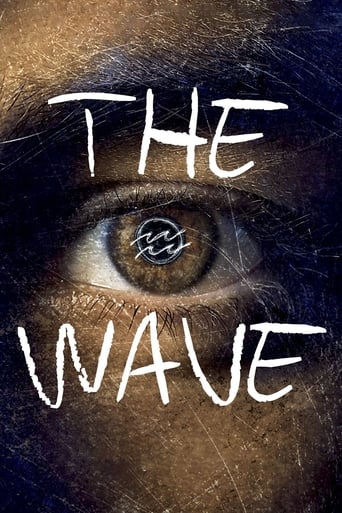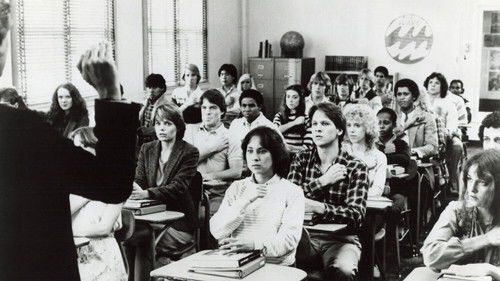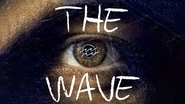Horst in Translation ([email protected])
"The Wave" is a 45-minute short film from 35 years ago directed by Alexander Grasshoff. Grasshoff was a 3-time Academy Award nominee at this point already for his documentary works and even if he was only in his early 50s when he made this one here, he was already close to retirement. "The Wave" won a Primetime Emmy in the children's category, although "children" is not exactly the right word to describe the target audience for this one. Teenage audiences can watch it, just like adults. It is about a group of students who take part in an experiment conducted by their teacher. Academy Award nominee and Golden Globe winner Bruce Davison plays the main character here. He brings up strict rules for behavior during his class in a similar manner it was done decades ago by the Nazi party. However, I must say, the whole classroom restrictions etc. looked more like in some weird sect to me. Anyway, love relationships suffer under these new developments and this includes the students and the teacher as well. There are some slightly cringeworthy moments, like the ending is certainly over the top or it was obvious the first student would forget standing up and addressing the teacher correctly. A bit on the predictable side sometimes. Nonetheless, this is as good as it gets for an 80s television short film and I recommend the watch. Also check out the German full feature adaptation starring Jürgen Vogel. It is a bit more in-your-face and a good watch as well if you enjoyed this one here. What is maybe the most interesting aspect is that it is actually based on real events. Thumbs up, I recommend it.
Rodrigo Amaro
The dedicated teacher Mr. Ross was right about such statement? How far would he go to teach high school kids an important History lesson about the most horrendous crime of the 20th Century? Watch it and judge for yourself while being part of an interesting experiment about how dictatorships are made without people realizing their dangers. The story is basically the same as "The Wave", German film released in 2008, both films were accounts of an real experiment that took place in California in 1967, but the approach of both movies have their own differences. In what they're equal? In their greatness and the message they give to us. History teacher Ben Ross (Bruce Davison) tells his students about the genocide of millions of people during the WW2 intriguing them while demonstrating facts of how things worked at the time. But he's asked an difficult question: "How come no one among the German citizens did nothing to stop the Nazists of such atrocity? Ross doesn't answer this question but instead takes his students to be involved in something that might take these interrogations marks off their heads: he starts an experiment where all in the classroom must follow, being an united group who uses the quote "Strength through discipline, strength through community, strength through action" as their motto. Here it starts "The Wave", an united and disciplined group about to change hearts and minds of their school, and who knows more they can do. It's all fun and new, until they take this experiment too seriously. Ross pushes them too far, forgetting that waves always return to the same place, always dying on the shore. His project makes the students blind of things, they've become unaware of how dangerous this could be outside of school's doors. He finds some resistance from his wife and from some of his students, but people will listen to this minority? Will Ross prove a point with this project or he'll be seduced by the power in his hands and make more of it? This special presentation in more of an educational film rather than a thriller like the German film; the ending was absolutely great for giving the lesson in the best possible way while the other film teached the lesson in the darkest possible way (great and exciting as well). Davison gives an extraordinary show in the main role; some of the kids are really good (the solitary Robert, played by Johnny Doran, was incredible), others not so much, near of a bad acting. But the lesson was effectively presented but by the teacher and by the movie: lousy and irresponsible dictatorships can reborn at any time. You only need downtrodden people in need of a rescuer, of preference a popular leader to follow; victims to be blamed for the lack of progress of the country who'll must exterminated later; and make sure people won't realize what they're doing is really terrible quoting that it will be good of the nation. When I hear that most of 60% of kids in school age don't know what the Holocaust was it makes me wonder why films like this are not well-known for them to really learn something (you can even find it at Google). We, as audience, must never forget this lesson. 10/10
Free-d
It's a shame this is a TV movie, so melodramatic and short. If someone had spent time and money trying to recreate a truer picture it's impact could have been immense. It's not even so much the physical production value that bothers me, but the glancing over of issues and plot reasoning along with completely unnecessary 'artistic license'. This is already an incredible story without throwing in your own bits.It also gave me the impression in places of hinting towards anti-Communism rather than the tyrannical dictatorship of Hitler's Germany. A sign of the times perchance in an early 80's U.S.? All in all though, for a short TV movie, I quite enjoyed it. But Jesus, poor Robert. I guess this gives an insight into attitudes towards the 'class creep' around the times. He was overtly considered worthless by everyone before the experiment that may just have broken him... but he was a bloody good Nazi while it lasted.
Peter Grunbaum
This is a quite astonishing insight into the psychology of fascism and nazism. It's perfectly credible. Where can one buy the book? on Amazon? Can you rent it in a library? I'd like to read it very much. Anyway, I saw it when I was very young. I'm a child of the 80s and this is very much an 80s movie but that does not make it any less brilliant. 10/10.If I saw it today I would probably laugh at it. But is that not because I have become an "oppressor" myself? Again I cannot begin to emphasize how deeply this short TV-movie has burned into my mind and stays there embodying the truth of our awful (in)human condition. This should be shown in all schools all over the world and taken very seriously in group discussions. It is an antidote for fascism on the level of Nietzsche in so far he is an antidote for suppresive religion. I cannot begin to emphasize how grateful I am for the moral lesson of "The Wave". It is a teaching tool for anyone who wants to avoid violence in schools, sects, political parties or any other group. Amen.






